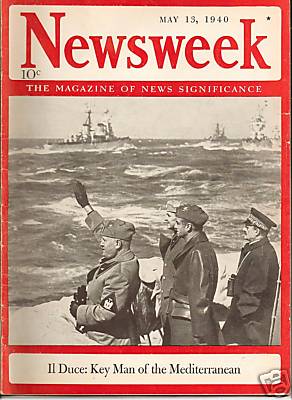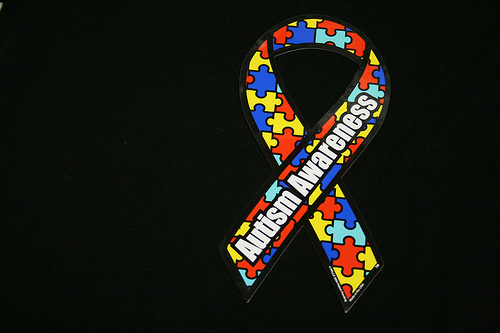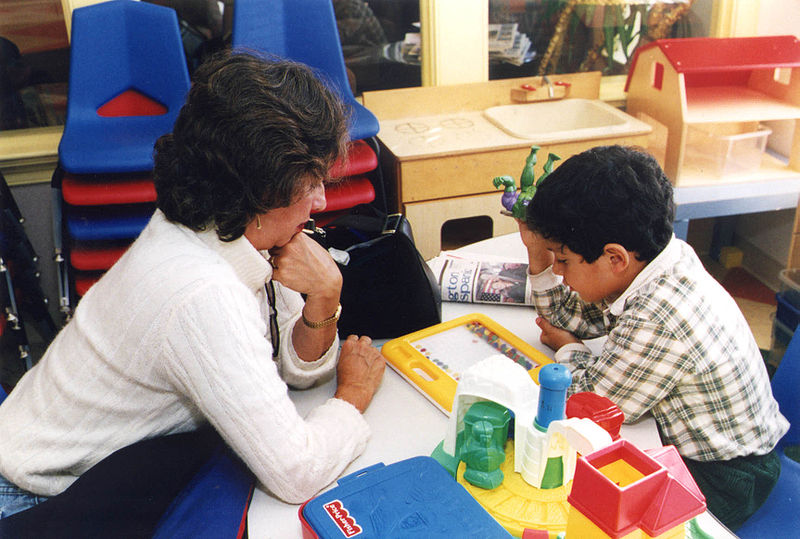As of last Wednesday, 13 entities had offered assistance with the Gulf oil spill cleanup including Canada, Croatia, France, Germany, Ireland, Mexico, the Netherlands, Norway, Romania, Republic of Korea, Spain, […]
All Articles
After taking tens of millions of dollars in losses over the past two years, The Washington Post Company has put Newsweek up for sale which, along with Time, once defined […]
How designers are revolutionizing product packaging, one of consumerism’s most toxic and wasteful byproducts, by using smart engineering and innovative materials to dramatically lighten its carbon footprint.
“When people wash their hands immediately after making a decision, they are less likely to rationalize its merits—possibly making them less content with the decision.”
Northrop Grumman is testing a high-powered, lightweight laser that can be used by U.S. soldiers in combat settings. Use of lasers on the battlefield could change warfare significantly.
By creating the first theoretical model of a wormhole 75 years ago, Albert Einstein and Nathan Rosen allowed science-fiction writers to consider the idea of time travel, writes Dave Goldberg.
Scientists have found that the brains of problem gamblers react more intensely to “near misses” than those of casual gamblers—possibly spurring them on to play more.
A German animal biologist Silvia Gaus says we should be killing the oil-soaked birds in the Gulf of Mexico. Doing so would be less painful in the long run than trying to clean them, she says.
If computerized trading is found to have accelerated yesterday’s trading carnage on Wall Street, it may spark demand for tighter regulation of high-speed trading.
Abou Farman writes about the art of the “Persian dub” in movies of the 1970’s where Western movies would get creative embellishments in dubbed translation.
Scientists have sequenced the Neanderthal genome, discovering it to be practically identical to that of humans. In fact, most humans can probably trace some of their DNA to Neanderthals.
Denialism about the nature of the AIDS virus is estimated to have killed many thousands of people. Should scientists should be held accountable?
Bruce Usher writes that China is thus far ahead of the U.S. in developing clean technology. But with swift action America can still win.
If you are a registered user of Big Think, you have the opportunity to win an autographed copy of one of my books and an 8×10 autographed color photo. The book […]
The election of Barack Obama was a watershed moment in American history. Just twenty years before it was hard to imagine that a majority of Americans would vote for a […]
Born for Love: WhyEmpathy is Essential and Endangered By Maia Szalavitz and Bruce Perry, M.D., Ph.D. Born for Love would make a great Mother’s Day gift. When it comes to […]
As a child, Dr. Michael Wigler was fascinated by the personality of a friend’s brother, “a very bright kid” who “never looked you in the face, constantly was throwing his […]
Having already pondered the Ivy League exodus from comedy to the White House, we try to dissect the direction Ivy League graduates may be going in with their degree in […]
Paul Farmer and Partners in Health “have shown the world that it is possible to control diseases and to redress some of the underlying causes that have turned them into pandemics.”
Researchers are attempting to “define a second genetic code: one that predicts how segments of messenger RNA transcribed from a given gene can be mixed and matched.”
Brendan Kiley looks at the history, meaning, and practice of suicide. “For most people, the subject is so taboo it’s hard to deal with—even among people who deal with suicide for a living.”
Walt Mossberg provides a basic explanation of what cloud computing is, and what it might mean for us in the near future.
“By 2050, almost 70 percent of the world’s estimated 10 billion inhabitants—or more than the number of people living today—will be part of massive urban networks.”
If a desperate, last-ditch attempt to cap the Deepwater Horizon wellhead fails, environmental damage to the Gulf of Mexico may profoundly and permanently alter the area.
Emily Bazelon writes that a citizen charged with a crime needs to be read their Miranda rights—even if they are charged with an act of terrorism.
Some winemakers and enthusiasts believe that wine tastes better on so-called “fruit” days—those days in the lunar calendar when water and saps rise.
“A growing body of evidence suggests that humans do have a rudimentary moral sense from the very start of life,” writes Paul Bloom. “Some sense of good and evil seems to be bred in the bone.”
Greece has plunged the euro into its worst crisis ever, and if economists are unable to bring discipline to the country there will be much more at stake than the fate of the currency.
The Web and cloud computing have made the work of archivists and record keepers faster than ever before, but is information lost in the internet’s labyrinth any more accessible than […]
Arizona is facing a backlash after Governor Jan Brewer signed a law making it a crime not to carry immigration papers and authorizing the police to detain anyone suspected of […]









